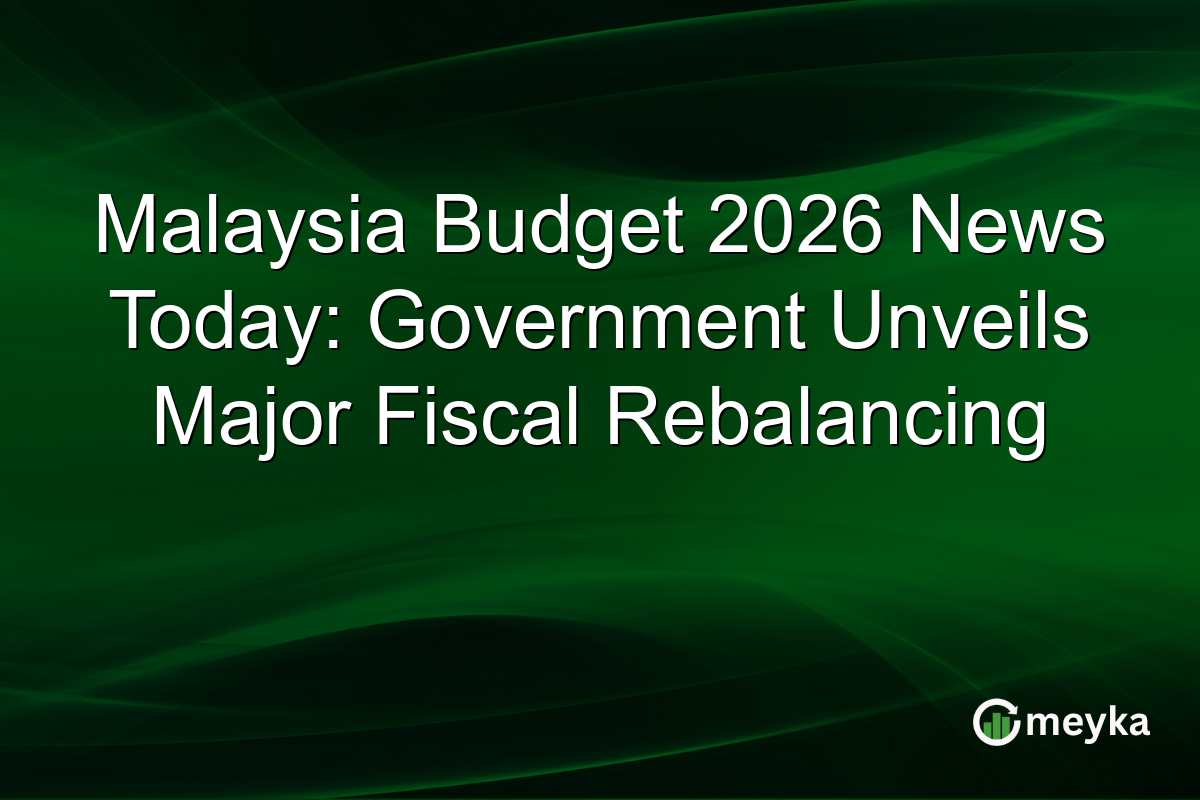Malaysia Budget 2026 News Today: Government Unveils Major Fiscal Rebalancing
The Malaysia Budget 2026 is stirring significant interest after the government announced substantial fiscal reforms and strategic sector allocations. This budget is particularly crucial as it aims to bolster economic growth while ensuring investor confidence in the post-pandemic landscape. Officials have highlighted several key initiatives that will direct public spending and introduce new tax measures to rebalance national finances.
Government Spending Priorities
Malaysia’s government is channeling resources into critical sectors. Healthcare, education, and technology are receiving top priority with increased allocations. This signifies a commitment to strengthening the infrastructure necessary for long-term sustainable growth. Healthcare, for instance, is set to receive a $2 billion increase, focusing on expanding rural access and improving service quality. This proactive approach is expected to enhance public health outcomes and workforce productivity significantly. Education spending will rise by 10%, targeting digital learning and skill development, crucial for Malaysia’s competitive edge in the global economy. Learn more.
Economic and Market Impact
The Malaysia Budget 2026 analysis underscores an optimistic economic outlook as the government aims for a 5% GDP growth in the coming year. This is supported by robust consumer spending predictions and increased foreign investments attracted by conducive business environments and fiscal incentives. Sectors such as renewable energy and manufacturing are likely to see enhanced investor interest due to the incentives for green technology and sustainable practices. These measures could lead to job creation and technological advancements, further driving economic expansion.
New Tax Initiatives and Reforms
A critical component of the Malaysia Budget 2026 is the introduction of new tax initiatives aimed at widening the tax base. The government plans to impose a digital tax on foreign digital service providers, expected to generate an additional $300 million annually. Moreover, tax relief measures for small and medium enterprises (SMEs) will encourage business growth and innovation. Such balanced measures aim to increase revenue without stifling economic activity. Read full details.
Investor Sentiment and Future Projections
Investor sentiment appears cautiously optimistic as Malaysia embarks on these fiscal reforms. Market analysts are watching closely to see if these measures will deliver the promised economic boost. The balanced approach towards public spending and revenue generation is expected to safeguard the fiscal position while promoting growth. The government’s ability to execute these plans effectively will determine Malaysia’s economic trajectory in the mid-term. Positive signals from domestic and international markets could bolster confidence and encourage further investment.
Final Thoughts
The Malaysia Budget 2026 is a pivotal step in the country’s journey toward fiscal stability and economic growth. With well-defined spending priorities and strategic tax initiatives, the government aims to balance economic expansion with fiscal discipline. These measures are designed not only to stimulate growth but also to ensure Malaysia remains an attractive destination for investors. As the government rolls out these plans, its success will largely depend on efficient implementation and responsive policy adjustments. For stakeholders, staying informed and adaptable will be key to leveraging these new opportunities.
FAQs
The main sectors benefiting are healthcare, education, and technology. With increased allocations, these sectors are expected to enhance service delivery, infrastructure, and innovation.
New tax initiatives, such as the digital tax and SME tax reliefs, aim to optimize revenue while promoting business growth. They balance revenue generation with economic stimulus.
The government targets a 5% GDP growth for 2026, supported by increased consumer spending and foreign investments, spurred by business-friendly fiscal measures.
Disclaimer:
This is for information only, not financial advice. Always do your research.






